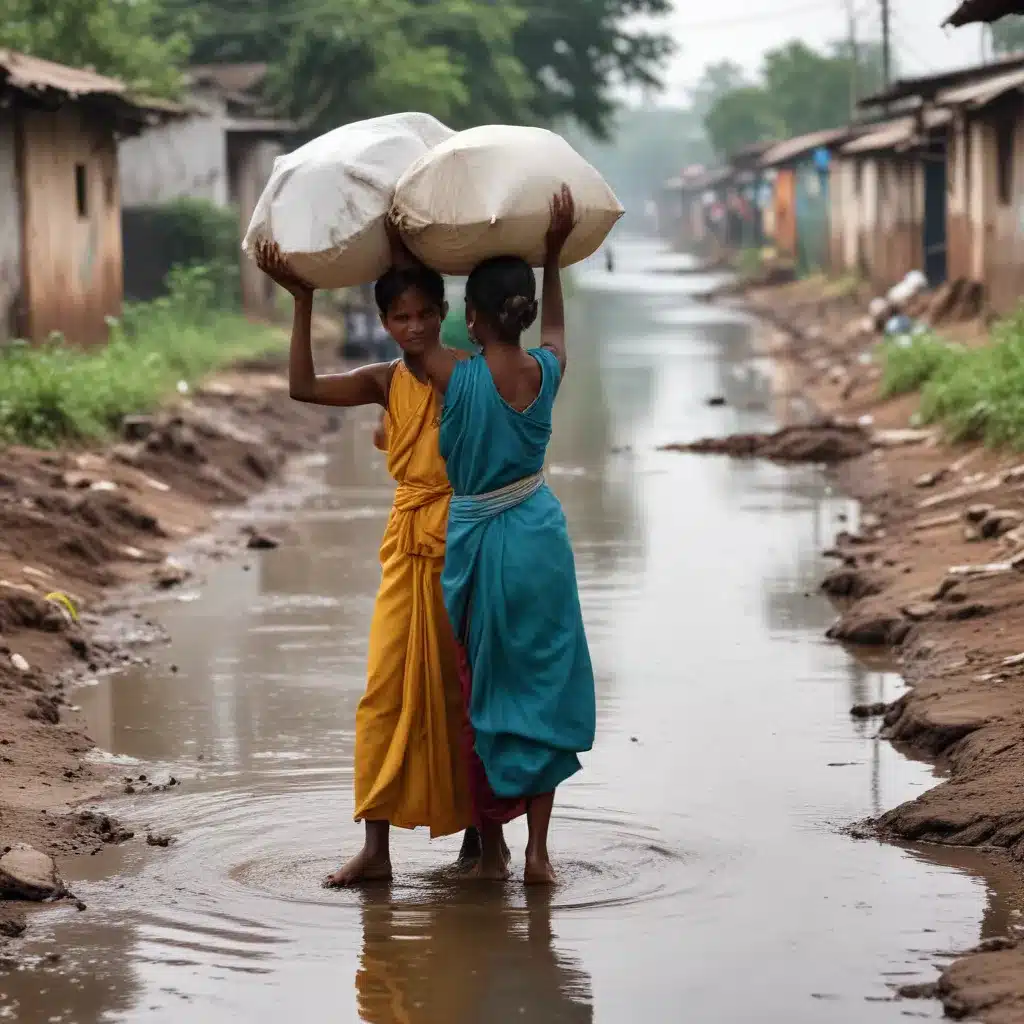
Understanding the Threats to WASH Services
Climate change poses a significant and growing threat to water, sanitation, and hygiene (WASH) services and infrastructure in India. As global temperatures rise and precipitation patterns become increasingly unpredictable, communities across the country are facing a range of climate-related challenges that undermine access to safe, reliable, and sustainable WASH systems.
One of the primary concerns is the impact of extreme weather events, such as floods, droughts, and storms, on WASH infrastructure. These events can damage or destroy water treatment plants, sewage systems, and other critical components, leaving communities without access to clean water and functioning sanitation facilities. For example, the devastating floods that hit the state of Kerala in 2018 resulted in the contamination of water sources and the disruption of sanitation services, leading to the outbreak of waterborne diseases.
Moreover, the gradual effects of climate change, such as sea-level rise and groundwater depletion, also pose serious threats to WASH services. Coastal communities in India are particularly vulnerable to the impacts of sea-level rise, which can lead to the salinization of freshwater sources and the inundation of infrastructure. Similarly, the depletion of groundwater resources due to prolonged droughts can make it increasingly difficult for communities to access clean water, especially in regions that rely heavily on groundwater for their water supply.
Addressing the Intersection of WASH and Climate Change
Recognizing the critical importance of WASH services in building resilient and sustainable communities, the Indian government has taken steps to address the intersection of WASH and climate change. The Swachh Bharat Mission, a national sanitation campaign, has made significant progress in improving access to toilets and promoting better hygiene practices. However, the long-term success of these efforts will depend on the ability to ensure that WASH infrastructure and services can withstand the impacts of climate change.
To this end, the government has launched initiatives such as the National Adaptation Fund for Climate Change, which provides financial support for the implementation of adaptation measures, including those related to WASH. Additionally, the National Water Mission aims to ensure integrated water resource management, with a focus on increasing water use efficiency and promoting groundwater recharge.
At the community level, grassroots organizations and civil society groups have been actively engaged in promoting sustainable WASH solutions and advocating for climate-resilient infrastructure. For example, the Joint Action for Water initiative has been working with local communities to implement nature-based solutions, such as the construction of wetlands and the restoration of watersheds, to enhance the resilience of WASH systems.
Community Resilience and Adaptation Strategies
One of the most promising approaches to addressing the climate risks to WASH services is to empower local communities and support their efforts to adapt and build resilience. This can involve a range of strategies, from improving the design and construction of WASH infrastructure to enhancing community-based water management and sanitation practices.
For instance, the Hopi Tribe in Arizona has been proactively addressing the impacts of climate change on their water resources. With the support of federal funding, the Tribe has undertaken the Hopi Arsenic Management Project, which aims to upgrade their water infrastructure and connect their BIA-owned water systems to the regional water system, ensuring access to clean and safe drinking water. This project not only addresses the immediate water quality concerns but also enhances the long-term resilience of the Hopi community in the face of climate change.
Another example is the relocation efforts of the Newtok Village in Alaska, which is experiencing severe coastal erosion due to climate change. The village has been working with federal agencies and other stakeholders to plan and execute the relocation of the community to a new site, known as Mertarvik, which is less vulnerable to the impacts of sea-level rise and extreme weather events.
Investing in Climate-Resilient WASH Infrastructure
Achieving climate-resilient WASH services in India will require significant investments in infrastructure and technology. The Bipartisan Infrastructure Law, passed by the U.S. Congress in 2021, has provided a much-needed financial boost to support Tribal communities in addressing their WASH-related challenges, including the impacts of climate change.
Through this landmark legislation, the Bureau of Indian Affairs (BIA) has received $250 million to support Tribal dams and water projects, addressing critical issues such as irrigation, power systems, dam safety, and water sanitation. This funding has been instrumental in enabling communities like the Hopi Tribe to undertake essential infrastructure upgrades and ensure access to clean, safe drinking water.
Moreover, the Inflation Reduction Act has allocated $150 million to the BIA’s Tribal Electrification Program, which aims to help Tribal communities electrify their homes using renewable energy sources. This investment is a crucial step towards the goal of achieving carbon-free electricity in Indian Country, contributing to the resilience of WASH services in the face of climate change.
Conclusion: Embracing a Holistic Approach
Addressing the climate risks to WASH services and infrastructure in India requires a multifaceted approach that combines policy, infrastructure investments, community-based solutions, and cross-sectoral collaboration. By embracing a holistic perspective that recognizes the interconnectedness of WASH, climate change, and community resilience, stakeholders can work together to build a more sustainable and equitable future for all.
As the impacts of climate change continue to intensify, it is crucial that communities, governments, and civil society organizations come together to prioritize the protection and enhancement of WASH services. By doing so, we can ensure that every person in India has access to the clean water, safe sanitation, and proper hygiene they need to thrive, regardless of the challenges posed by a changing climate.

